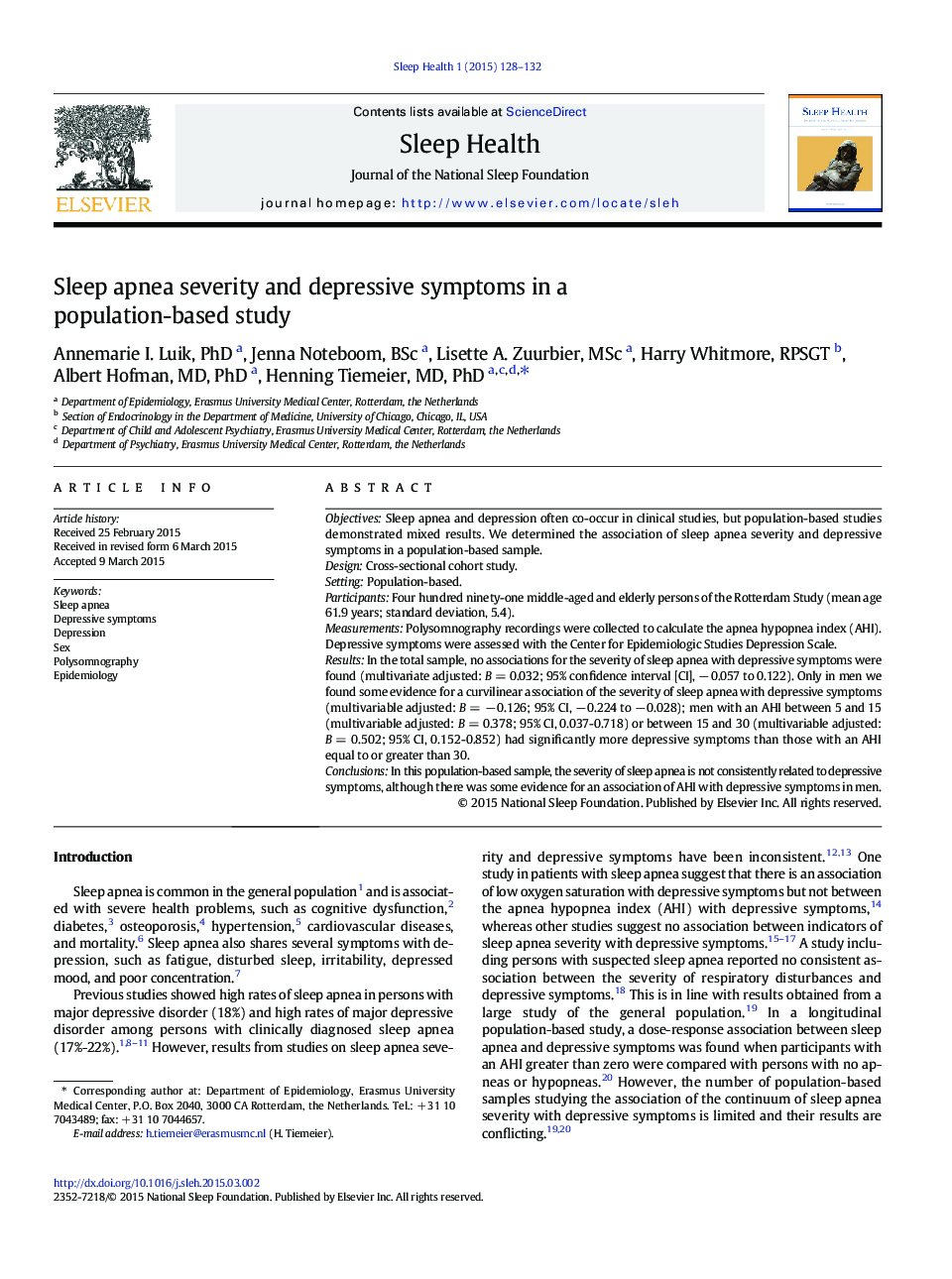| Article ID | Journal | Published Year | Pages | File Type |
|---|---|---|---|---|
| 916342 | Sleep Health | 2015 | 5 Pages |
ObjectivesSleep apnea and depression often co-occur in clinical studies, but population-based studies demonstrated mixed results. We determined the association of sleep apnea severity and depressive symptoms in a population-based sample.DesignCross-sectional cohort study.SettingPopulation-based.ParticipantsFour hundred ninety-one middle-aged and elderly persons of the Rotterdam Study (mean age 61.9 years; standard deviation, 5.4).MeasurementsPolysomnography recordings were collected to calculate the apnea hypopnea index (AHI). Depressive symptoms were assessed with the Center for Epidemiologic Studies Depression Scale.ResultsIn the total sample, no associations for the severity of sleep apnea with depressive symptoms were found (multivariate adjusted: B = 0.032; 95% confidence interval [CI], − 0.057 to 0.122). Only in men we found some evidence for a curvilinear association of the severity of sleep apnea with depressive symptoms (multivariable adjusted: B = − 0.126; 95% CI, − 0.224 to − 0.028); men with an AHI between 5 and 15 (multivariable adjusted: B = 0.378; 95% CI, 0.037-0.718) or between 15 and 30 (multivariable adjusted: B = 0.502; 95% CI, 0.152-0.852) had significantly more depressive symptoms than those with an AHI equal to or greater than 30.ConclusionsIn this population-based sample, the severity of sleep apnea is not consistently related to depressive symptoms, although there was some evidence for an association of AHI with depressive symptoms in men.
